![Eat, Pray, Stress: Restaurant Success Secrets (And Ways to Fail) [Chills 166 ft Pagi Sore, Jekyll & Hyde]](https://thefinancialcoconut.com/wp-content/uploads/2024/04/maxresdefault-2-440x264.jpg)
All
Latest
All
Popular
Personal Finance
LatestShould you still top up CPF with Cash after all the latest changes? [Chills165 Ft 1M65 Founder]
Should you still top up CPF with Cash after all the latest changes? [Chills165 Ft 1M65 Founder]...
Investing, Market Updates, Stock Geekout, Stock Market
LatestEat, Pray, Stress: Restaurant Success Secrets (And Ways to Fail) [Chills 166 ft Pagi Sore, Jekyll & Hyde]
Eat, Pray, Stress: Restaurant Success Secrets (And Ways to Fail) [Chills 166 ft Pagi Sore, Jekyll...
E-commerce, Franchising
Latest2024 Ecommerce insights, how to sell to Americans in the comfort of your home? [Chills 155 feat WorldFirst]
2024 Ecommerce insights, how to sell to Americans in the comfort of your home? [Chills 155 feat...
Career
Latest10,000 Hour Myth: Does It Actually Lead to Success? [TFC Wise And Shine 51]
10,000 Hour Myth: Does It Actually Lead to Success? When I first started on my entrepreneurial...
Retirement
LatestShould you still top up CPF with Cash after all the latest changes? [Chills165 Ft 1M65 Founder]
Should you still top up CPF with Cash after all the latest changes? [Chills165 Ft 1M65 Founder]...
Personal Growth
LatestHow Corporate Athletes do better in the Hustle [W&S 71 ft. Ex National Athlete Alex Loh]
How Corporate Athletes do better in the Hustle [W&S 71 ft. Ex National Athlete Alex Loh] How...

![Kids, Career and Budget 2023: Can Working Mums Have it All? [ft. Oniatta Effendi]](https://thefinancialcoconut.com/wp-content/uploads/2024/03/maxresdefault-1-440x264.webp)
![How Corporate Athletes do better in the Hustle [W&S 71 ft. Ex National Athlete Alex Loh]](https://thefinancialcoconut.com/wp-content/uploads/2024/04/How-Corporate-Athletes-do-better-in-the-Hustle-WS-71-ft.-Ex-National-Athlete-Alex-Loh-440x264.jpg)
![Should you still top up CPF with Cash after all the latest changes? [Chills165 Ft 1M65 Founder]](https://thefinancialcoconut.com/wp-content/uploads/2024/04/maxresdefault-1-1-440x264.jpg)
![Are you tired of holding yourself back? How to be an Unstoppable Asian [ft Happiness Scientist]](https://thefinancialcoconut.com/wp-content/uploads/2024/04/maxresdefault-1-440x264.jpg)
![Here’s a Simplified Guide you need to know about Income Tax in Singapore and Legally Reduce Your Tax Bills [ft IRAS]](https://thefinancialcoconut.com/wp-content/uploads/2024/04/maxresdefault-440x264.jpg)
![You Do Not Need A Lot Of Money For Lean FIRE [TFC 161 with HoneyMoneySG]](https://thefinancialcoconut.com/wp-content/uploads/2024/03/Retire-On-Your-Terms-Beyond-the-Governments-Retirement-Age-Guidelines-1-440x264.png)
![Life After Cancer: Singaporean’s Story of Personal Growth and Priorities [W&S 68 Sponsored by AIA]](https://thefinancialcoconut.com/wp-content/uploads/2024/03/WnS-68-v2-440x264.png)
![1M65 & Getting to $1 Million By 35? [Chills 61 with HoneyMoneySG]](https://thefinancialcoconut.com/wp-content/uploads/2024/03/Chills-with-TFC-thumbnail--440x264.png)
![Ways to FIRE: Real Stories from Middle-Class Corporate Professionals [Chills 163 ft Matthew & Tony]](https://thefinancialcoconut.com/wp-content/uploads/2024/03/Ways-to-FIRE-Real-Stories-from-Middle-Class-Corporate-Workers-Chills-163-ft-Matthew-Tony-440x264.jpg)
![Valuable Things I Learned From Being A 60 Year Old Digital Nomad [Chills 120 ft Christina Teo She1k]](https://thefinancialcoconut.com/wp-content/uploads/2024/03/maxresdefault-2-1-440x264.jpg)
![Simple Secrets To Simplify Your Life From Stress-Beating Singaporeans [W&S 68 ft Happiness Scientist]](https://thefinancialcoconut.com/wp-content/uploads/2024/03/maxresdefault-1-2-440x264.jpg)
![How Singaporean professionals Are Amassing Wealth In Real Estate [Chills 162 ft Justin Quek]](https://thefinancialcoconut.com/wp-content/uploads/2024/03/maxresdefault-3-440x264.jpg)
![Breaking Free from the “Good Girl” Money Trap [W&S 67 ft Serena Wong & Sharon Sim]](https://thefinancialcoconut.com/wp-content/uploads/2024/03/WnS-68-440x264.png)

![How One Couple Broke Free of the Rat Race from Singapore to Penang [Chills 161 ft CorporateBreakout]](https://thefinancialcoconut.com/wp-content/uploads/2024/03/Chills-161-440x264.png)
![Deciding What to Say ‘No’ to in a Fast-Paced World [W&S 66 ft JJ Ong]](https://thefinancialcoconut.com/wp-content/uploads/2024/03/image_2024-03-11_100222201-440x264.png)
![Could Mainland Spenders Fuel Your Retirement Fortune After Fifty? [ft. Sasseur REIT & Dr. Wealth]](https://thefinancialcoconut.com/wp-content/uploads/2024/03/maxresdefault-1-440x264.jpg)
![What’s The Best Way To Budget Your Salary? [Chills 87 with @Lisa Adulting in Singapore]](https://thefinancialcoconut.com/wp-content/uploads/2024/03/maxresdefault-2-440x264.jpg)
![Finding Your Tribe: Creating Genuine Connections in the Lion City [W&S 65 ft Simone Heng]](https://thefinancialcoconut.com/wp-content/uploads/2024/03/maxresdefault-440x264.webp)
![Singapore Budget: 2044’s Singapore Dream is to Aspire for More Than Survival [ft. RICE Media, NUS, @AinLovesCodes]](https://thefinancialcoconut.com/wp-content/uploads/2024/02/maxresdefault-1-1-440x264.jpg)
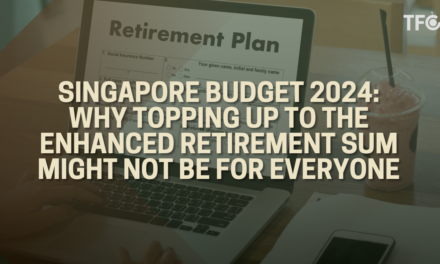
![Retirement Real Talk: Is CPF a reliable partner for all Singaporeans? [ft. IPS, Pergas, Providend]](https://thefinancialcoconut.com/wp-content/uploads/2024/02/maxresdefault-2-440x264.jpg)
![Examining the Survival of the Property Ladder in Singapore’s Budget [ft Prof Lee Kwan Ok & Nicholas Huang]](https://thefinancialcoconut.com/wp-content/uploads/2024/02/sg-budget-2-440x264.jpg)
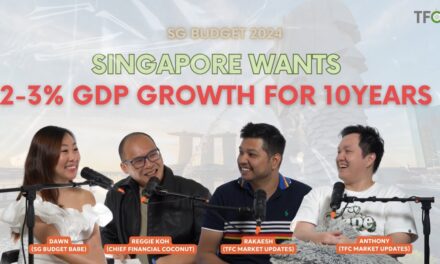

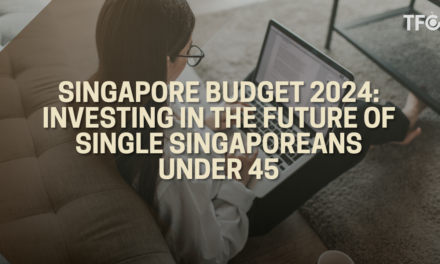
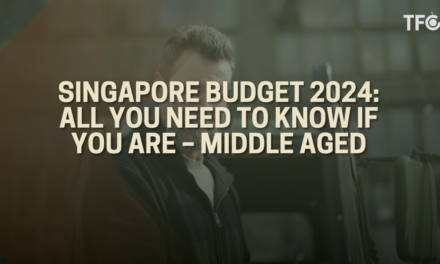

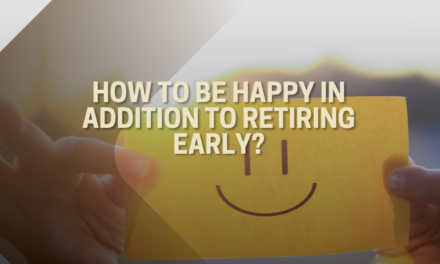
![TFC Budget Royale: The Ultimate Money Saving Showdown [Sponsored by OCBC 360]](https://thefinancialcoconut.com/wp-content/uploads/2024/02/Chills-153-440x264.png)
![Exploring the Prospects and Opportunities for SG REITs in 2024 [Chills 158 Ft REITSavvy@ SGX]](https://thefinancialcoconut.com/wp-content/uploads/2024/02/Chills-158-revised-title-440x264.png)

![Genuine human connection is the ultimate currency Singaporeans lack [W&S 64 Simone Heng]](https://thefinancialcoconut.com/wp-content/uploads/2024/02/Genuine-human-connection-is-the-ultimate-currency-Singaporeans-lack-440x264.jpg)
![If Parenthood May Cost $15,000 To Even Start. Is IVF Or IUI Better?[ft Dr Suresh Nair & Jaslyn Koh]](https://thefinancialcoconut.com/wp-content/uploads/2024/02/If-Parenthood-May-Cost-15000-To-Even-Start.-Is-IVF-Or-IUI-Better-440x264.jpg)

![The ‘Do What You Love’ Myth: Passion as a Career Isn’t Always Best [W&S 63 ft MP Pei Ling]](https://thefinancialcoconut.com/wp-content/uploads/2024/01/The-Do-What-You-Love-Myth-Passion-as-a-Career-Isnt-Always-Best-WS-63-ft-MP-Pei-Ling-440x264.jpg)
![$6693 is the Minimum Income Standard in Singapore Today [ft Assoc Prof Teo You Yenn & Dr Ng Kok Hoe]](https://thefinancialcoconut.com/wp-content/uploads/2024/01/6693-is-the-Minimum-Income-Standard-in-Singapore-Today-ft-Assoc-Prof-Teo-You-Yenn-Dr-Ng-Kok-Hoe-440x264.jpg)
![Feeling Underpaid? How to Make Your Case Without Burning Bridges [W&S 62 ft Puay Lim Yeo]](https://thefinancialcoconut.com/wp-content/uploads/2024/01/maxresdefault-2-440x264.jpg)
![FIRE Is Overrated! Manage Your Finances To Live Your Best Life [Chills 2 ft. Christopher Tan @Providend]](https://thefinancialcoconut.com/wp-content/uploads/2024/01/Old-Episodes-Article-Chills-with-TFC-thumbnail--440x264.png)
![2024 Ecommerce insights, how to sell to Americans in the comfort of your home? [Chills 155 feat WorldFirst]](https://thefinancialcoconut.com/wp-content/uploads/2024/01/2024-Ecommerce-insights-how-to-sell-to-Americans-in-the-comfort-of-your-home-Chills-155-feat-WorldFirst-440x264.jpg)
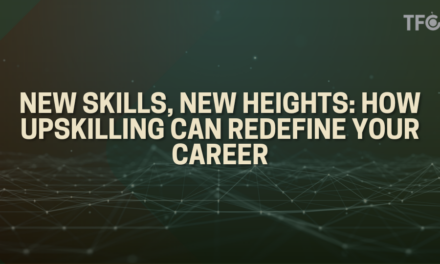
![A Millennial Manager’s Realities & Guide To Managing Both Up and Down [W&S 61 ft Henry Suryawirawan]](https://thefinancialcoconut.com/wp-content/uploads/2024/01/maxresdefault-1-2-440x264.jpg)
![What Goes Into Running A Hawker Stall? It’s Much Harder Than You Think. [Chills 132 ft. Bengwhocooks]](https://thefinancialcoconut.com/wp-content/uploads/2024/01/maxresdefault-1-1-440x264.jpg)
![Dividend Investing is Stable, Reliable, and Great For Retirement [Chills 154 ft Willie Keng, Dividend Titan]](https://thefinancialcoconut.com/wp-content/uploads/2024/01/maxresdefault-1-440x264.jpg)

![Is Now the Right Time to Switch Careers in Singapore’s Job Market for 2024? [W&S 60 ft Puay Lim Yeo]](https://thefinancialcoconut.com/wp-content/uploads/2024/01/maxresdefault-440x264.jpg)
![Make Your 2024 Budget Today With Mindfulness [Chills 153 ft Lisa’s Adulting in Singapore]](https://thefinancialcoconut.com/wp-content/uploads/2024/01/maxresdefault-440x264.webp)
![Finding Balance in the Hustle: Rethinking What’s Important In Life [W&S 59]](https://thefinancialcoconut.com/wp-content/uploads/2023/12/Wise-Shine-Thumbnail-1-1-440x264.png)
![$90000 Income tax relief, Invest and Retire Early [Chills 152 ft Josh Tan]](https://thefinancialcoconut.com/wp-content/uploads/2023/12/maxresdefault-1-440x264.jpg)
![How Inflation Threatens to Burn Through My Retirement Money [Chills 150 ft.OCBC FWI 2023]](https://thefinancialcoconut.com/wp-content/uploads/2023/12/Chills-150-1-440x264.png)
![Healthy Relationships at Home Alongside Corporate Success is Possible [Wise & Shine 58 feat. Winifred Ling]](https://thefinancialcoconut.com/wp-content/uploads/2023/12/Wise-Shine-Thumbnail-1-440x264.png)

![The BTO Ultimatum: Is Home Ownership a Dealbreaker for Singaporeans? [W&S 56 feat. Winifred Ling]](https://thefinancialcoconut.com/wp-content/uploads/2023/12/Wise-Shine-Thumbnail-440x264.png)
![Hustle Smarter, Not Harder: Side Hustle Hacks for Success [Chills 150 featuring @prudentialsingapore]](https://thefinancialcoconut.com/wp-content/uploads/2023/12/Chills-150-440x264.png)
![Crisis Management Lessons So You Don’t Sink with the Ship [W&S 57 feat. Henry Suryawirawan]](https://thefinancialcoconut.com/wp-content/uploads/2023/12/maxresdefault-440x264.jpg)
![How Saying Yes to a Working Holiday Visa Changed My Life For the better [Chills 149 ft. Jordan & Chloe]](https://thefinancialcoconut.com/wp-content/uploads/2023/12/working-hol-visa-440x264.jpg)
![So what is the good life in Singapore? [W&S 55 Ft Forward Singapore]](https://thefinancialcoconut.com/wp-content/uploads/2023/11/Wise-Shine-Thumbnail-2-440x264.png)
![Byte-Sized Banking: Pioneering Payments Solutions For Amazon Sellers [feat Barry @WorldFirst]](https://thefinancialcoconut.com/wp-content/uploads/2023/11/Chills-148-440x264.png)
![Pro Insights on Brand Building, Profit Tactics and Growth Hacks [Chills 148 feat WorldFirst]](https://thefinancialcoconut.com/wp-content/uploads/2023/11/Chills-148-1-440x264.png)
![Forward Singapore: Can we build a new Singapore Dream Together | Part 1 [W&S 54]](https://thefinancialcoconut.com/wp-content/uploads/2023/11/Wise-Shine-Thumbnail-1-440x264.png)
![Mastering First Impressions: Insider Tips for Interviews to Acing Dates [W&S 53]](https://thefinancialcoconut.com/wp-content/uploads/2023/11/Wise-Shine-Thumbnail-1-1-440x264.png)
![NFTs & Plushies: How They Sold Out While The Haters Slept [Chills 146 feat. Tasty Toastys]](https://thefinancialcoconut.com/wp-content/uploads/2023/11/Old-Episodes-Chills-with-TFC-thumbnail--440x264.png)
![Befriending My Boss: Am I Making A Mistake? [W&S 1]](https://thefinancialcoconut.com/wp-content/uploads/2023/11/WS-Thumbnail-OLD-440x264.png)
![REIT Outlook: Pro Forecasts, Strategies and Picks for 2024 [Chills 145 feat. Kenny Loh]](https://thefinancialcoconut.com/wp-content/uploads/2023/11/Chills-with-TFC-thumbnail--440x264.png)
![10,000 Hour Myth: Does It Actually Lead to Success? [TFC Wise And Shine 51]](https://thefinancialcoconut.com/wp-content/uploads/2023/10/Wise-Shine-Thumbnail-1-440x264.png)
![How You Can Benefit From Being an Average Joe and Coming out a Champ [W&S 47 feat. Rakaesh Vijayan]](https://thefinancialcoconut.com/wp-content/uploads/2023/10/Wise-Shine-Thumbnail-440x264.png)
![Salary Liberation: How to Rise Above the Last Paycheck Stigma [W&S 49]](https://thefinancialcoconut.com/wp-content/uploads/2023/10/Old-Episodes-Wise-Shine-Thumbnail-440x264.png)
![Is Work a Place to Put on a Show or Be Our True Authentic Selves? [W&S46 ft. Chris @HoneyMoneySG]](https://thefinancialcoconut.com/wp-content/uploads/2023/09/Old-Episodes-Wise-Shine-Thumbnail-5-440x264.png)
![An NCMP’s Challenge to Singaporeans to Rethink the Good Life [W&S 44 feat. Leong Mun Wai]](https://thefinancialcoconut.com/wp-content/uploads/2023/09/Old-Episodes-Wise-Shine-Thumbnail-1-440x264.png)
![How Lucrative Can Tech Sales Be? but also Things You Should Know Before Joining [W&S 45 ft. Adrian]](https://thefinancialcoconut.com/wp-content/uploads/2023/09/Old-Episodes-Wise-Shine-Thumbnail-4-440x264.png)
![Warren Buffett’s Epic Investment Move & Shares for Every Investor | How To Invest Pt.2 [Chills 139 feat. Thomas Chua@steadycompounding]](https://thefinancialcoconut.com/wp-content/uploads/2023/09/Chills-with-TFC-thumbnail--440x264.png)
![The Principles of a Good Investment | How To Invest Pt.1 [Chills 138 feat. Thomas Chua @steadycompounding]](https://thefinancialcoconut.com/wp-content/uploads/2023/09/Chills-Thumbnail-OLD-440x264.png)
![Should individual identity take over community? [TFC Wise And Shine 39]](https://thefinancialcoconut.com/wp-content/uploads/2023/09/Old-Episodes-Wise-Shine-Thumbnail-3-440x264.png)
![Achieve Quality, Cost, and Time: 3 Franchises That Did It Right [Chills 137 feat. FLA]](https://thefinancialcoconut.com/wp-content/uploads/2023/09/Chills-Thumbnail-OLD-3-440x264.png)
![Passive Income Face-off: Smart Vending vs. Self-Serve Gym. Which Reigns Supreme? [Chills 136 ft FLA]](https://thefinancialcoconut.com/wp-content/uploads/2023/09/Chills-Thumbnail-OLD-2-440x264.png)
![Working abroad: Will you take a 50% pay cut to return to Singapore? [Chills 135]](https://thefinancialcoconut.com/wp-content/uploads/2023/09/Chills-Thumbnail-OLD-1-440x264.png)
![The Costs Of Work That Disappear Once You Stop Working [First Dibs 194]](https://thefinancialcoconut.com/wp-content/uploads/2023/07/FD-194-1-440x264.png)
![Can You Grow Your SRS Retirement Fund Without Being Taxed? Yes! [First Dibs 196, 119]](https://thefinancialcoconut.com/wp-content/uploads/2023/07/You-Do-Not-Need-A-Lot-Of-Money-For-Lean-FIRE-440x264.png)
![In The Personal Finance Universe, What Truly Matters? [First Dibs 200]](https://thefinancialcoconut.com/wp-content/uploads/2023/07/FD-1-440x264.png)
![Top 3 Personal Finance Advice According to ChatGPT [First Dibs 187]](https://thefinancialcoconut.com/wp-content/uploads/2023/03/FD-187-440x264.png)
![Budget 2023: Realisations for Middle-Class Singaporeans [First Dibs 186]](https://thefinancialcoconut.com/wp-content/uploads/2023/03/maxresdefault-440x264.jpg)
![How Can The Insurance Buying Process Be Improved? [Chills 83 with @sav.finance]](https://thefinancialcoconut.com/wp-content/uploads/2022/08/Chills-83-440x264.png)
![How Does One Go From A 6-Figure Debt To Financial Independence? [Chills 79 with Dave]](https://thefinancialcoconut.com/wp-content/uploads/2022/07/Chills-79-440x264.png)
![Defend Yourself From These 3 Logical Fallacies In Personal Finance [TFC 106]](https://thefinancialcoconut.com/wp-content/uploads/2021/09/FD-187-2-440x264.png)